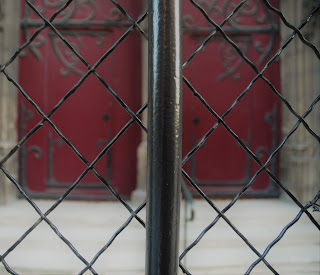It’s not always my easiest sell – and I get it – when you’re
doing your best just to sit quietly in the same room, when you’re here in the
first place because you have reached the end of the line, when there’s a lot of
red-hot conflict between you, it might sound ludicrous for me to tell you that
I’m going to work with you to increase your empathy for that other person. But
stay with me and let me try to tell you why it will help resolve your conflict.
Empathy is the ability to
understand the feelings, thoughts, and motivations of others – even if you
disagree with them. It has been referred to as a “super power” in part because
it is extremely effective in helping to reduce conflict. Utilizing empathy helps to separate the
personas involved (e.g., husband/dad and wife/mom) from the interests being
expressed (e.g., wanting what is “best” for the kids). For example, when
divorcing parents can hear that have very similar interests, that each of them
love their children and want their children to be happy and healthy, it is a
lot easier to come up with custody schedules and parenting plans that meet
those needs. On the other hand, if these same parents are focusing on the
person with whom they are in conflict, it is too easy to think about all the
“bad” things that person brings to parenting, rather than on the specific issue
being discussed, that is, what custody arrangements will work best for the kids
and for their parents.
Empathy helps take you out of
“defense mode” so that you are more open to actually hearing and seeing things
from the other’s perspective. When a
person feels empathy coming from another person, they are likely to feel more
calm, to stop fighting. Just knowing that you have been heard goes a long way
in resolving conflicts – it is like you are being granted permission to put
down your armor and end the battle.
It's also said that being able to
use empathy empowers the person using it because they can use their empathy to help
to control the situation and help resolve the conflict. Similarly, employing
empathy helps you to control your own feelings and allow you to respond more
and react less – which always yields better results.
Listening with empathy helps to create an atmosphere where needs can be expressed more freely and fully, setting the foundation for working out agreements where people’s needs are met, thus resulting in long lasting consensus. In coming articles I’ll post some “easy listening” techniques to help you listen with empathy, even during moments of heated conflict.
In the meantime, I hope you find this helpful! You can always
reach me at: karen@karenjusterhecht.net
or 510.210.3796.






